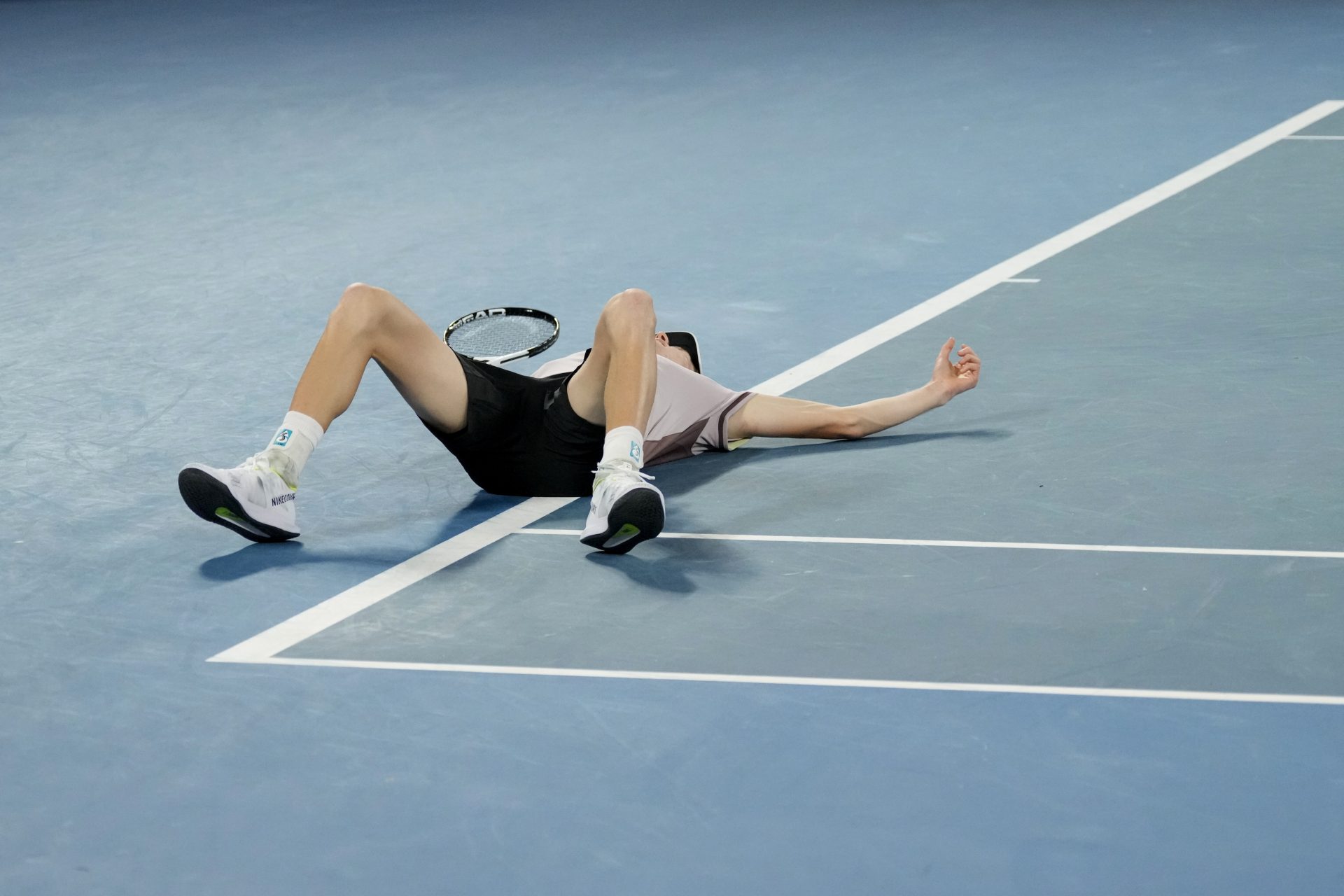«Many times, in life as in sport, the game is never over until the end and, even when the game seems to be over, it is crucial to think of having a certain possibility of control over events. You must never abandon yourself, thinking I can not do it o I won’t be able to do it anyway. This teaching, which comes from sport and is then transferable to all other contexts of daily life, leads to a mental and behavioral approach which materialized in front of everyone yesterday during the match Jannik Sinner».
Expert in motivation and stress management
Talking is Pietro Trabucchi, athlete and psychologist of various Olympic teams, who has been dealing with motivation and stress management for years, and is a professor at the University of Verona and contact person for research on the psychology of activities in extreme environments at CeRiSM, the Verona-Trento Interuniversity Research Center on human performance. Trabucchi refers to the psychological theory of “locus of control”, those who maintain the “place of control” internally, within themselves, believe that life events depend above all on themselves and not by fate or others, and this has consequences on his behavior and therefore on the outcomes of his actions. Which is what is meant by the more concise “it’s a matter of the head”.
It’s not just about pools, ski slopes or red clay fields, but about life. In fact, as Trabucchi explains to us, «a reversal of the situation does not only happen in a single event, however important, as happened yesterday, but is also possible in careerswhen people reach their goal against all odds and even though the situation seemed hopeless.”
Train mental strength
In his essay Inner resistance techniques. How to survive the crisis of our society (Mondadori), the coach explains how train mental strength and endurance in a society where effort and commitment are avoided rather than sought for growth potential that they offer. «Sports teach self-confidence. The awareness that perseverance and motivation will lead to results enhances the sense of self-efficacy» Trabucchi explains to us, citing some studies also conducted with animals which demonstrate how «hope can be trained: this means that when we achieve a goal by working hard with effort and commitment, the next time we find ourselves in a difficult situation we are more ready and put ourselves out there more than before.”
Resilience is not a magical gift
Having been through it, and having learned what you are capable of, gives you more resilience. After all, as he illustrates in his I resist, therefore I am (Corbaccio), in which he takes as an example some champions he has trained and known, dealing with stress and overcoming obstacles is easier when you have learned how to do it. And here is the point: «These experiences are useful. Taking away from young people, as it seems to be done more and more often with the intention of protecting them, the possibility of experiencing a clash/encounter in which they measure themselves against others does not teach them to get up and face adversity, the so-called resilience. Comparing yourself with others and with your own limits instead helps you grow and improve. It’s a resource. For example, not giving grades in class or not making competition rankings, rewarding all teenagers without distinction as is done with baby skiing, is wrong, because it doesn’t push young people to improve.” As he explains in his essay Persevering is human (Corbaccio), «resilience is not a magical or supernatural gift, but is linked to the way we process information and relate to reality». And he adds: «It is a cognitive ability and as such it can be trained». Also because, then, frustrations and competitions exist and kids will encounter them as they grow up, so you need to equip yourself as best as possible.
On skis as a child
Jannik Sinner, who has been skiing since he was a child and only turned to tennis in adolescence, thanked his parents for always leaving him free to choose and never putting any pressure on him. «The parent who pushes their children to achieve results, a rather widespread phenomenon, has a narcissistic problem and seeks his own egocentric satisfaction» concludes Trabucchi. «By doing so he is, unknowingly, destroying the possibilities of his daughter and son, substituting his own motivation for theirs. This happens especially at the beginning, when successes come easily, but going forward as the difficulties increase, the young athlete’s motivation will make the difference.”
In the opening photo, by AP Photo/Alessandra Tarantino/LaPress, Sinner’s joy after the latest Medved exchange.
